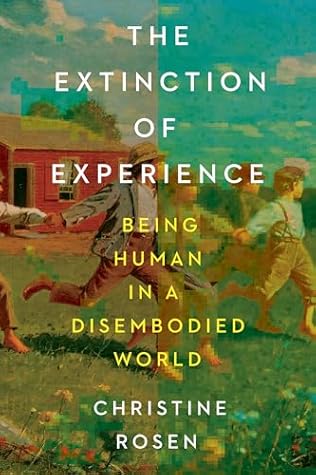More on this book
Community
Kindle Notes & Highlights
Read between
March 28 - April 8, 2025
Pleasures that used to be private are now public, and we seem to have a compulsion to turn even the most mundane acts into public performance.
Pleasure requires the presence of shadows and ambiguities. It thrives in private.
The writer James Joyce coined the word “iSpace” in Finnegans Wake (1939) to play with the idea that space could be punctured by time—an ideographically prescient use—but also an acknowledgment that place is bounded, while space is without limits.
When she was a technology reporter for the New York Times, Nellie Bowles wrote a piece about how human contact was becoming a “luxury good.” She was describing an emerging reality wherein the poor are given technological alternatives or mediated contact while the rich still seek out and can afford in-person experiences. She talked to a consultant to luxury companies who noted, “What we are seeing is the luxurification of human engagement.”
We lose a sense of our fragility and limits and, as a result, an understanding of what it means to be an embodied human being.


